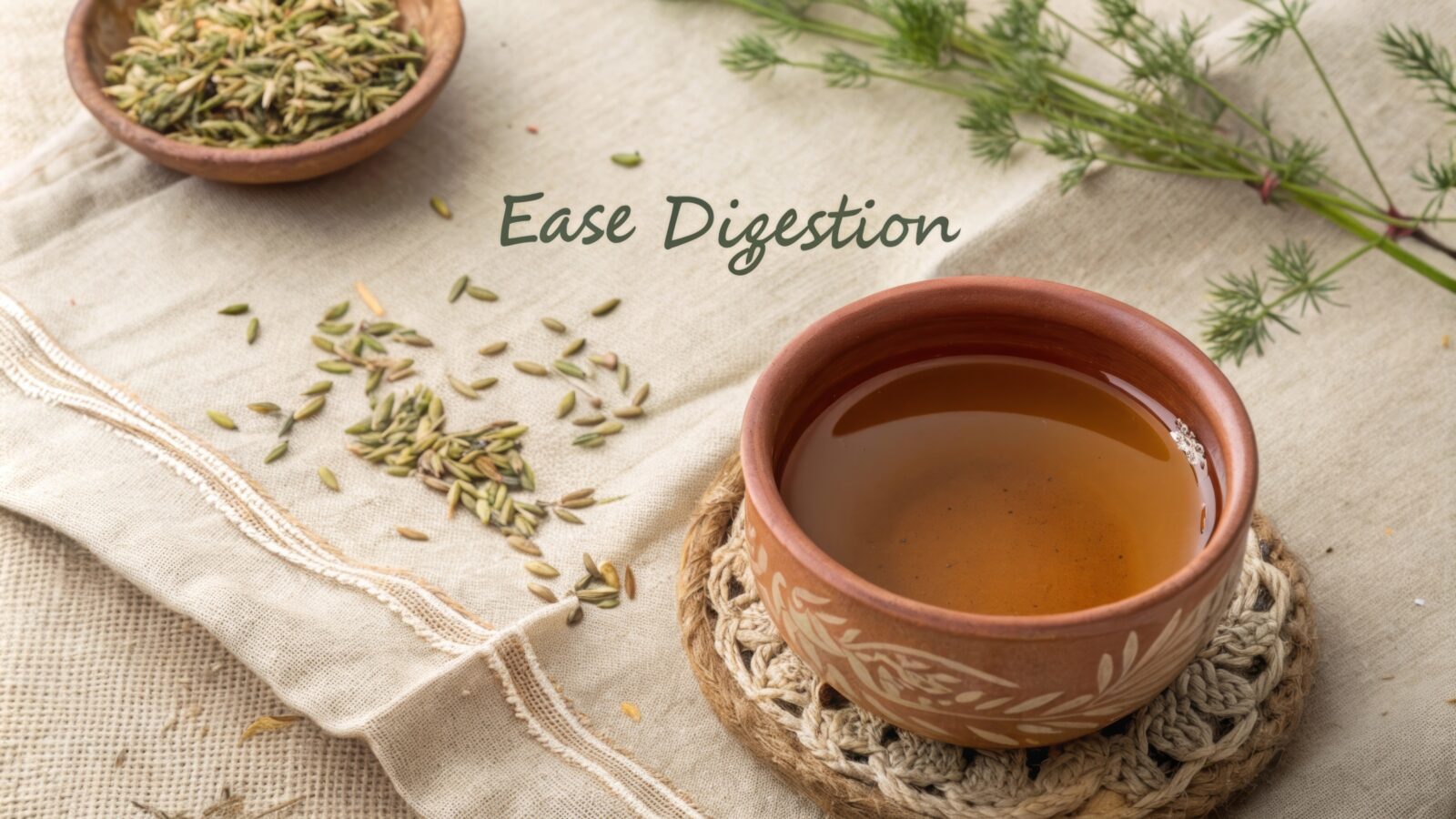Soothing Sips for the Stomach: Teas That Help You Feel Your Best
Burgers and brats from the grill, with sides of potato salad and plenty of beer. Bottomless plates of nachos at neighborhood Mexican joints—the margaritas seemed to never end, too. Vacations: yes to another Aperol Spritz; certainly to both pizza and pasta for lunch; si, grazie mille, for the day’s third gelato.
For most of us, rules and protocols gird three seasons of the year. But in summer, we ditch the self-imposed regulations and let loose. The go-for-it gusto can do wonders for our mental health; after so many months of structured rigidity, a little lassitude feels like brain balm.
But the evacuation of rule obedience often comes with side effects—particularly ones that take up residence in our stomachs. That parade of tacos al pastor, banh mi, Pimms Cups and grilled peaches over vanilla ice cream? Tasty—and rich. The belly aches.
Invite tea to settle that belly and supercharge digestion

You know what can help right the digestive ship? Tea! Sipping tea to bring about stomach serenity registers as an age-old practice.
As August serves as National Wellness Month, let’s pivot our attention to our turbulent tummies. Keeping our digestion on track speaks to more than the alleviation of discomfort—science increasingly reveals that healthy gut microbiomes are vital for overall vigor, even mental health.
At the conclusion of the individual tea descriptions, read on for a simple guide to botanicals that can help mitigate digestion issues.
Digestion Teas: Ginger Puerh (Organic)
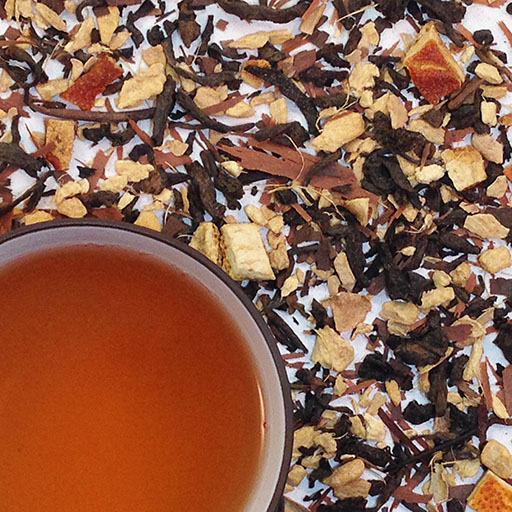
This fabulous blend brings together two botanical digestion warriors in one brew: ginger and puerh. It also contains lapacho, a South American plant famous for its antiviral and antimicrobial benefits.
Ginger, the fiery root, contains two compounds that researchers have studied in connection with digestion: gingerols (in fresh ginger) and shogaols (in dried ginger). Both are responsible for the root’s signature heat and aroma. Among other things, these compounds stimulate saliva, bile and gastric enzymes, which help shepherd food smoothly through the complexities of the digestive tract.
Both Traditional Chinese Medicine (TCM) and Ayurveda (traditional Indian approach toward wellness) leverage ginger for its digestive properties. We adore ginger-spiked drinks in the morning, to get our juices flowing. And we appreciate it after meals, too, to spark improved digestion.
Then there’s puerh, the famous fermented tea from China—mostly from Yunnan Province. The fermentation aspect of puerh develops complex and captivating flavors. It also contributes toward the tea’s digestive powers. While hot water extinguishes the microbes that ripened the tea into puerh, the tea still manages to pack a digestive wallop. It could come from the fermentation process’s microbial partners—they break down some of the tea’s polyphenols, yielding compounds that help the body digest fat and metabolize lipids.
One thing is for sure: People across China routinely sip puerh, especially after heavy, oily or meaty foods. The tea’s flavors cut through the heavy meals, but Chinese people also appreciate how the tea seems to lighten the meal—both in the mouth and the belly.
Digestion Teas: Tummy Tea Herbal Blend (Organic)
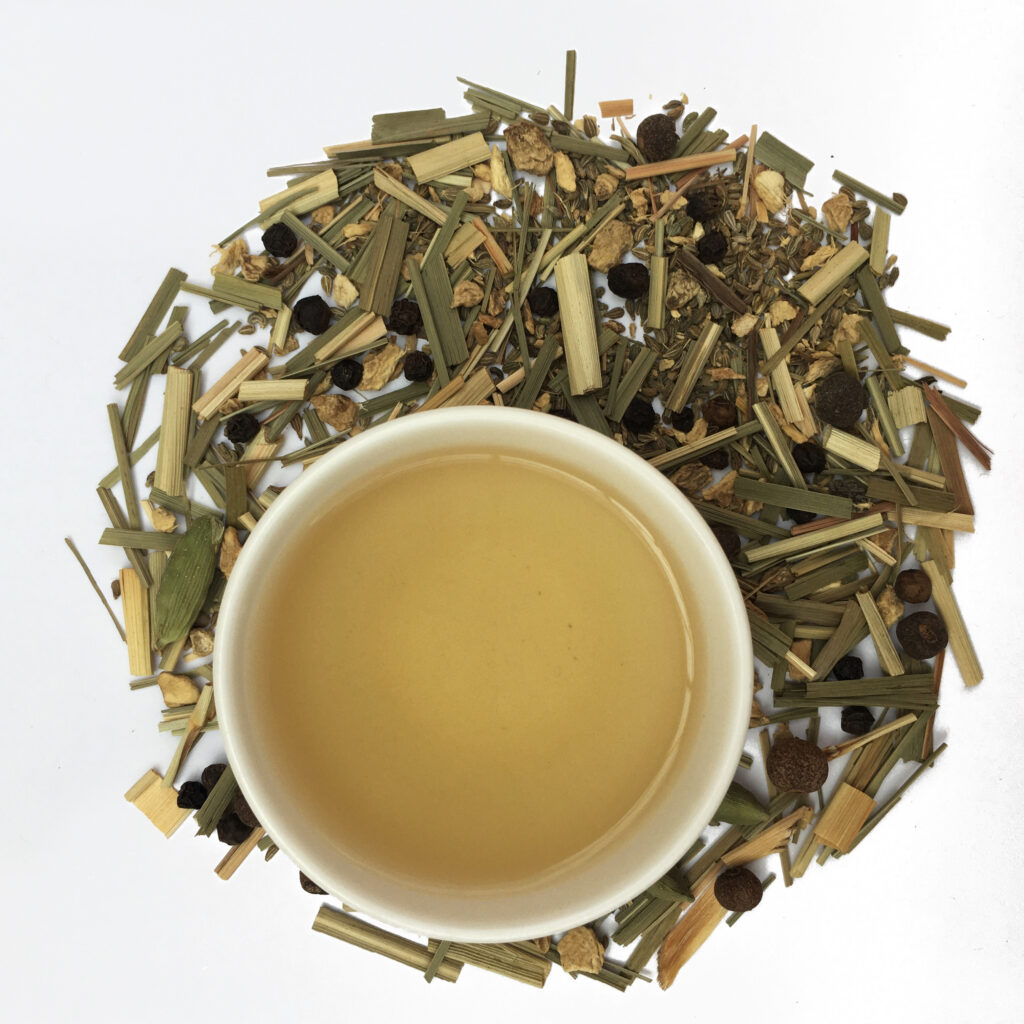
Digestion has always been an important part of the tea experience. We brew it for flavor and aroma, for energy and focus—and for how it can massage digestion, too. So we crafted our own custom blend specifically for the stomach—our organic Tummy Tea Herbal Blend.
This digestive powerhouse contains a welter of valuable botanicals, including allspice, anise, black pepper, cardamom, lemongrass and—yes—ginger.
Let’s stick with the stars, other than ginger (which we explored above): anise and cardamom. The piperine in black pepper can stimulate digestive enzymes, which is excellent. And lemongrass has traditionally been used to treat stomach discomfort.
But anise stands as a well-established digestion partner. It gets used to relieve gas, bloating and mild cramping. In South Asian, Middle Eastern and Mediterranean cultures, it’s common to sip beverages containing anise after meals.
And traditional medicine practitioners in Ayurvedic and Middle Eastern traditions champion cardamom for its ability to ripen internal balance after rich meals, to ease nausea and to freshen breath.
Digestion Teas: Afternoon in the Aspens (Organic)
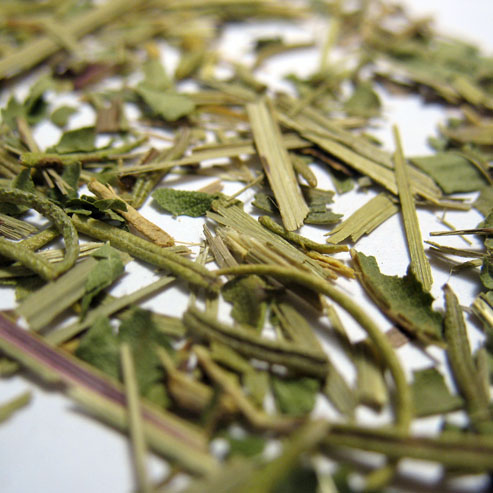
We crafted this custom blend as a caffeine-free pick-me-up. But the melange of botanicals also help optimize digestion. Quite the twofer!
The clear star here? Licorice root. When brewed, released botanicals like glycyrrhizin form a light, protective coating over the stomach and intestinal linings. The process helps to ease irritation and mild inflammation from acid, and aids digestion. In addition, phytochemicals in the root may ease digestive tract inflammation. Licorice root enjoys a longstanding digestive role in Chinese, Ayurvedic and Western herbalism. It’s vital.
As mentioned earlier, lemongrass also is no slouch on the digestive front. It’s a traditional remedy in many Asian cultures, and believed to help ease stomach pain, cramping and bloating, while also being mildly antimicrobial.
Lemon verbena, a lovely herb, lightly stimulates digestion by, among other things, triggering those salivary glands. And rosemary, that helpmate for many Italian culinary dishes, also encourages bile flow, which improves the body’s ability to break down fats.
Ku Cha’s Guide to Helpful Digestive Botanicals
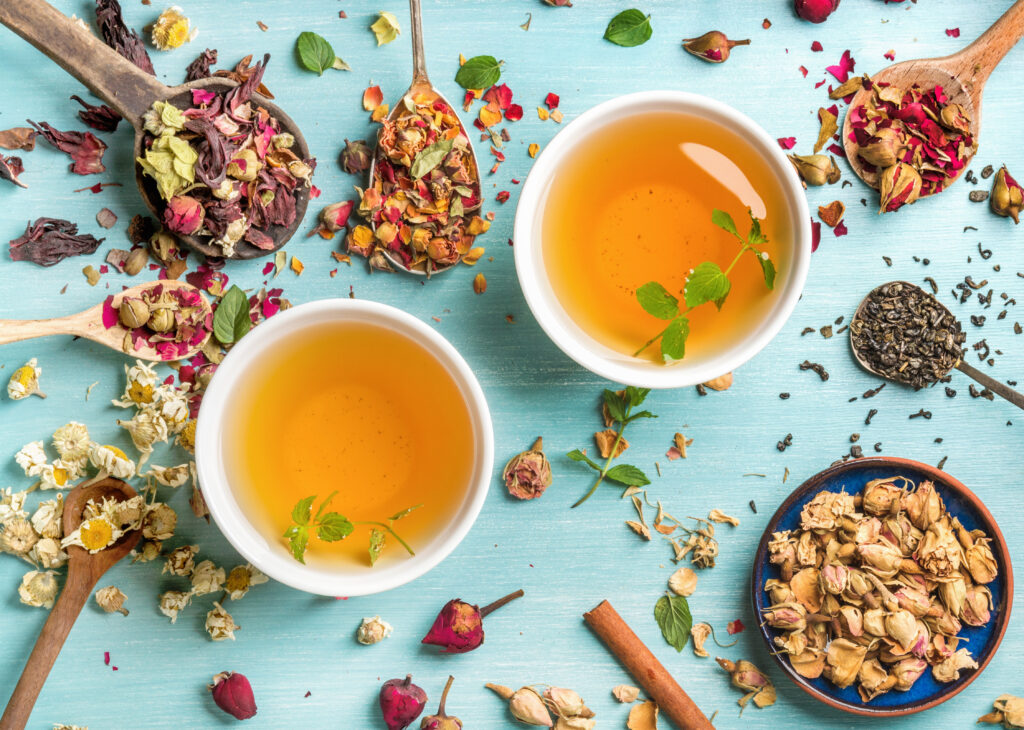
The following list of botanicals all get tapped by traditional medical practitioners to aid digestion. They also get studied by researchers interested in how botanicals interact with the human digestive tract in beneficial ways. All of these botanicals can be found in our Blend Your Own Tea program!
- Peppermint: Often used for indigestion, bloating, and mild IBS symptoms.
- Fennel: Seeds commonly chewed after meals in many cultures to help relieve gas and bloating.
- Chamomile: Contains apigenin and other compounds that deliver anti-inflammatory effects.
- Dandelion Root: Bitter tonic that stimulates bile production, aiding fat digestion.
- Cinnamon: Warming spice; can help with sluggish digestion and reduce gas. Also, antimicrobial action supports a balanced gut environment.
- Cloves: Rich in eugenol; used to ease gas, bloating, and nausea.
- Turmeric: Anti-inflammatory; may support gut lining health. It has traditionally been used to support fat metabolism and ease stomach discomfort.
- Holy Basil / Tulsi: Adaptogen with digestive benefits; can calm the gut during stress-induced upset.

